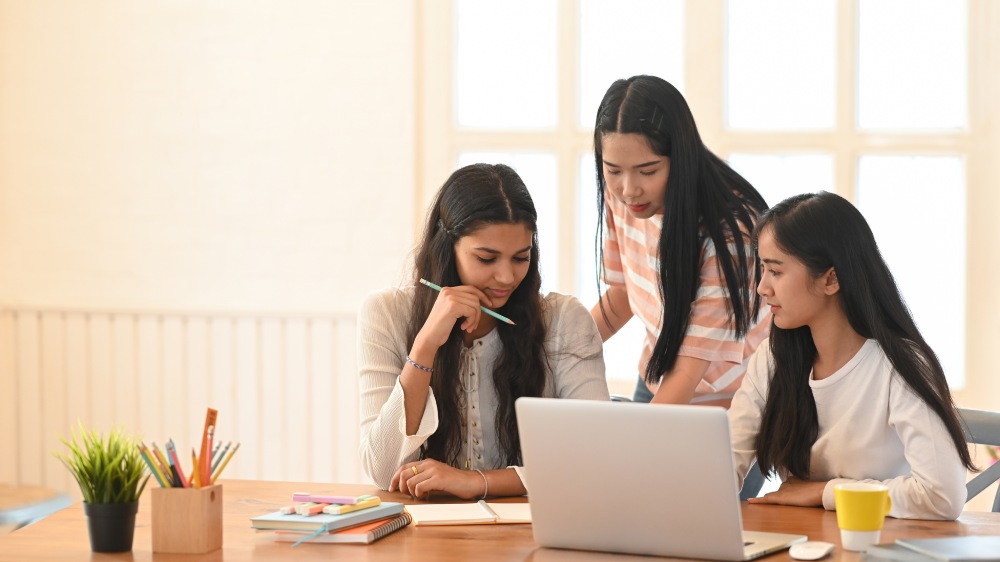Welcome Agency Name

With the gradual easing of COVID-19 restrictions in many parts of the world, universities are also beginning to reopen their campuses for face-to-face learning. This is no exception for international students in Australia, who previously studied remotely due to the pandemic. However, as of January 28th 2023, China has banned online studies, mandating students to return to their respective universities in Australia for face-to-face learning. It’s good to note that the policy is subject to China’s Education Ministry changes from time to time and there can be possible exemptions from the rule for students that faced difficulties in acquiring a visa within a short period of time or students who were unable to book flights and / or find a suitable accommodation in Australia. In such events, the student should seek exemption from the rule when applying for degree certification.
While the return to normalcy may be exciting for some, it’s understandable that many students may feel anxious about the transition back to in-person learning. This is especially true for those only exposed to remote learning. Nevertheless, it’s crucial to keep in mind that with the right mindset and preparation, it’s possible to integrate back into on-campus life successfully. Here are some tips we have compiled to help make the process smoother.
It is important to set realistic expectations for yourself when returning to face-to-face learning. You may have been studying from home for the past year and may not be used to being in a classroom setting. Hence, be kinder and give yourself time to adjust to the new environment and schedule. While you can’t expect to feel immediately comfortable with everything, just know that it will get easier with time.
Make sure you are prepared for class by reviewing the syllabus and any materials the lecturer or professor provides ahead of time. This will give you an idea of what to expect and allow you to come to class with any questions. Being prepared can also help alleviate anxiety about returning to face-to-face learning.
Most universities have resources available to help international students adjust to campus life. These resources may include academic support, counselling services, and international student organisations. We recommend you take advantage of these resources to help you return to face-to-face learning.
Often, it’s the simplest social interactions that can have the most significant impact. Engaging in casual conversations with classmates and lecturers, both old and new, can help alleviate the first-day jitters that you may be experiencing.
Furthermore, participating in class discussions and group activities is an important part of the learning process. It can also help you feel more comfortable in the classroom setting. Don’t be afraid to ask questions or share your ideas with the class. Remember, everyone is adjusting to the new learning environment, and your participation can help create a more welcoming and collaborative atmosphere.
Participating in various clubs and student organisations can be a great way for you to meet new people and establish connections more organically.
For some students, distance learning may have negatively impacted their communication skills. By getting involved in different societies and activities, they can put their social skills to the test and take a break from school-related tasks. Essentially, it’s like achieving two goals at once.
Although remote learning may have provided students with more flexibility, it often lacked structure, which could be disruptive for some. Before returning to face-to-face learning, it can be helpful to ease back into your pre-pandemic daily routines gradually.
Some of these routines may involve establishing a consistent wake-up time, preparing breakfast before heading to school, and even having a nightly bedtime ritual. Whatever the routine may be, practising it before the first day of in-person learning back at school can help reintroduce a sense of familiarity and stability.
Returning to face-to-face learning and discussion groups after a year of online studies can be challenging for international students. However, the transition can be smoother by setting realistic expectations, being prepared, taking advantage of resources, participating in class, practising self-care, and staying connected with others. Remember, it is normal to feel anxious or overwhelmed initially, but with time and effort, you can adjust to the new learning environment.
If you’re looking for apartments to settle in for the upcoming school semesters, consider Y Suites as your student apartment of choice. They provide student housing in Melbourne, Sydney, and Adelaide, with a wide variety of room types for students to choose from – Studio Standard, Studio Premium, Studio Deluxe, Studio Twin Share, 2 Bedroom Apartments, Ensuite Standard and Ensuite Premium – as well as a suite of amenities that residents can enjoy.
But above all, staying at Y Suites and participating in their planned events can help students ease into face-to-face learning in several ways. Firstly, it provides an excellent opportunity for students to network with others living on the property, which can help them build a community and feel more supported during the transition back to on-campus learning. Additionally, participating in social events such as Taco Tuesdays and movie nights can help students break the ice with their fellow residents, which in turn, alleviates some of the anxiety and jitters they may feel on their first day back in a physical classroom.
Lastly, having a sense of community and engaging in social activities can help students feel more engaged and motivated in their studies, ultimately leading to a more successful academic experience.
Contact us to find out more about our Y Suites family today!
Book an on-site tour with us!